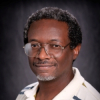Eugene Kennedy

Eugene Kennedy
Eugene Cullen Kennedywas an American psychologist, syndicated columnist, and a professor emeritus of Loyola University Chicago. He remained a professor of psychology at the university for several years. A laicized Catholic priest and a long-time observer of the Roman Catholic Church he wrote over fifty books on psychology, religion, the Catholic Church, and THE psychology of religion, and also published three novels, Father's Day, Queen Bee, and Fixes. He wrote a column for the Religious News Service, distributed by the...
NationalityAmerican
ProfessionPsychologist
Date of Birth18 August 1928
CountryUnited States of America
Francis seems familiar because Catholics have already known him in the Vatican II priests who have been their pastors and sacramental ministers over the years since that council brought new life to an old church. Catholics have known him in the bishops and priests who brought the spirit of the council to their dioceses and parishes.
The real test of friendship is: can you literally do nothing with the other person? Can you enjoy those moments of life that are utterly simple?
The truth of faith is a slender, glowing element that runs through even the seemingly ordinary and undramatic moments of existence. Even at low intensity, it is a steady source of illumination. Such religious truth is powerful even when it seems faint, even when it seems obscured by the larger events of history.
The seminary of the future must relate itself to flesh-and-blood men, or it provides a framework that only talks about the people of God but never really shares life with them.
The real test of friendship is can you literally do nothing with the other person? Can you enjoy those moments of life that are utterly simple?
Is childhood ever long enough, or a happy time, or even a beautiful summer day? All of these carry the seeds of the same fierce mystery that we call death.
There is a silence that matches our best possibilities when we have learned to listen to others. We can master the art of being quiet in order to be able to hear clearly what others are saying. . . . We need to cut off the garbled static of our own preoccupations to give to people who want our quiet attention.
Life does not hurt nearly as much if we have learned to listen to ourselves and to recognize how fully and richly we are trying to tell ourselves the truth.
The future is religion and commerce, aphrodisiac and Benzedrine, a mother of mysterious comfort and a mistress of familiar ravishments ever on the verge of embracing or destroying us.
There are times when silence is the most sacred of responses.
Death is by no means separate from life. . . . We all interact with death every day, tasting it as we might a wine, feeling its keen edge even in trifling losses and disappointments, holding it by the hand, as a dancer might a partner, in every separation.
We not only romanticize the future; we have also made it into a growth industry, a parlor game and a disaster movie all at the same time.
Can you enjoy those moments of life that are utterly simple.
The moment an individual can accept and forgive him or herself, even a little, is the moment in which he or she becomes to some degree lovable.